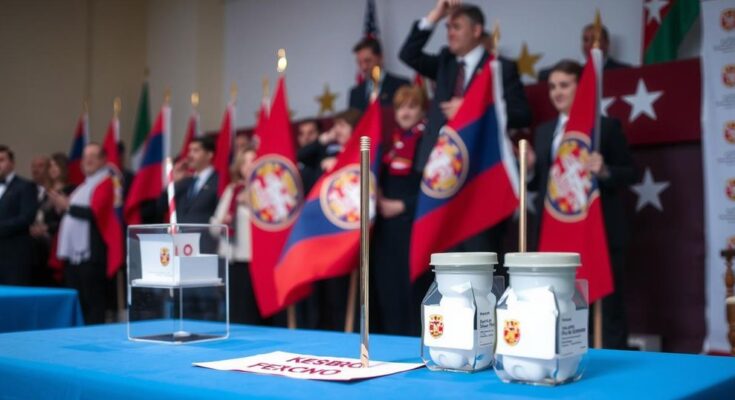Kosovo’s electoral appeals panel has allowed the ethnic Serb party, Srpska Lista, to compete in the parliamentary elections after canceling a previous ban. The Central Election Commission’s refusal to certify the party due to its nationalist views and connections to Serbia was deemed unlawful. With overwhelming dominance in the Serb minority representation, this decision raises significant implications for the upcoming elections and the broader Kosovo-Serbia relationship.
On Wednesday, Kosovo’s electoral appeals panel overturned a prior ban, permitting the ethnic Serb party Srpska Lista to participate in the forthcoming parliamentary elections. The Electoral Panel for Complaints and Appeals concluded that the party met the necessary political criteria for registration, reversing a decision by the Central Election Commission which had denied certification due to the party’s nationalist tendencies and close affiliations with Serbia. Srpska Lista, which currently occupies nine out of ten seats reserved for the Serb minority in Kosovo’s 120-member parliament, is set to present 48 candidates in elections scheduled for February 9. This election is anticipated to be a significant evaluation of Prime Minister Albin Kurti’s leadership, following his party’s decisive victory in 2021. The previous commission’s ruling had raised concerns among Western nations regarding its potential to exacerbate the already complicated relationship between Kosovo and Serbia, which has been a focus of efforts aimed at normalization in recent years.
Kosovo has a complex political history, having been a Serbian province until the NATO intervention in 1999 which concluded the armed conflict between Serbian forces and ethnic Albanian separatists. This conflict resulted in significant casualties, predominantly among ethnic Albanians, and ultimately led to Kosovo declaring independence in 2008—a status that remains unrecognized by Serbia. The Serb minority in Kosovo plays a crucial role in the region’s politics, with their representation directly influenced by the ongoing tensions between these two nations. The recently lifted ban on Srpska Lista allows for continued political dynamics within Kosovo, reflecting the critical balance of power represented by ethnic groups in the parliament.
The recent decision by Kosovo’s appeals panel to allow Srpska Lista’s participation in the parliamentary elections is a pivotal moment for the political landscape in Kosovo. With the upcoming elections seen as vital for assessing the current government’s authority, the involvement of the ethnic Serb party adds another layer of complexity to the relationship between Kosovo and Serbia. This development underscores the ongoing need for diplomatic efforts to address the historical and political tensions in the region, particularly in light of international apprehensions regarding stability.
Original Source: www.voanews.com




